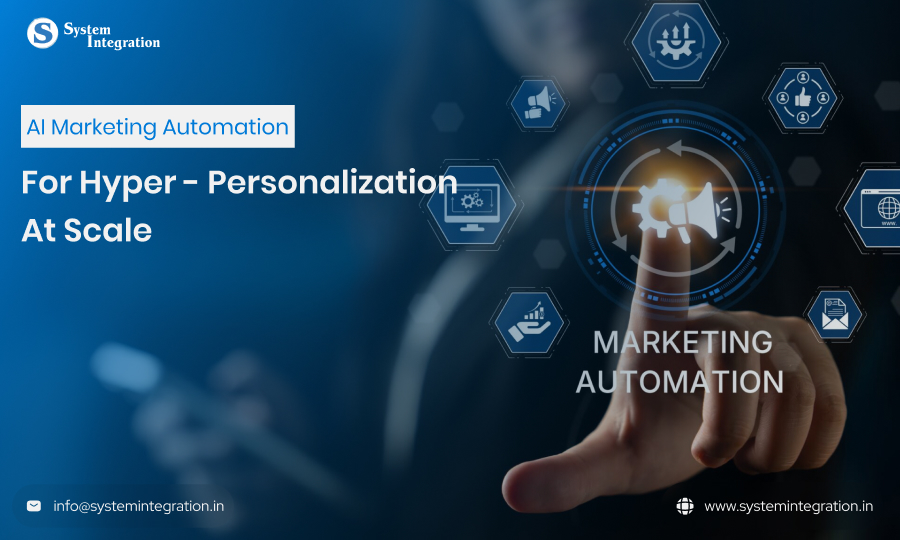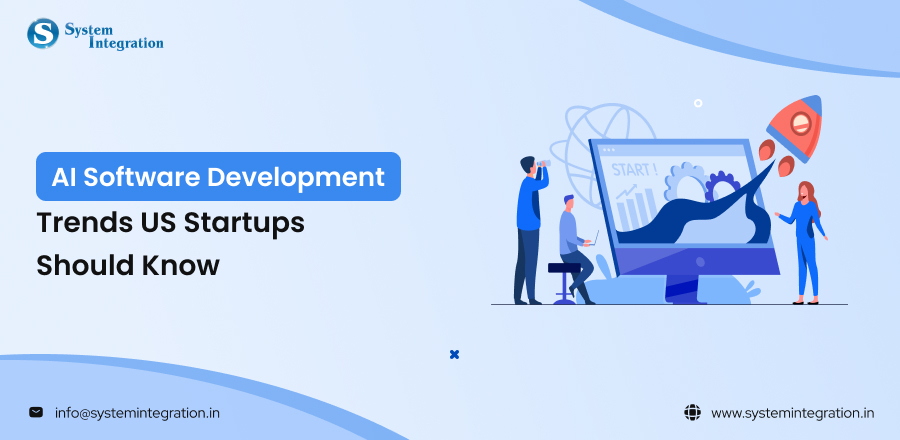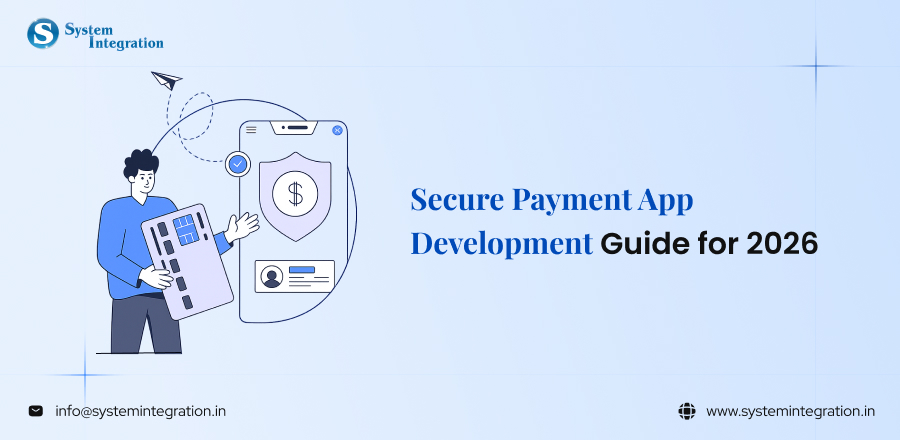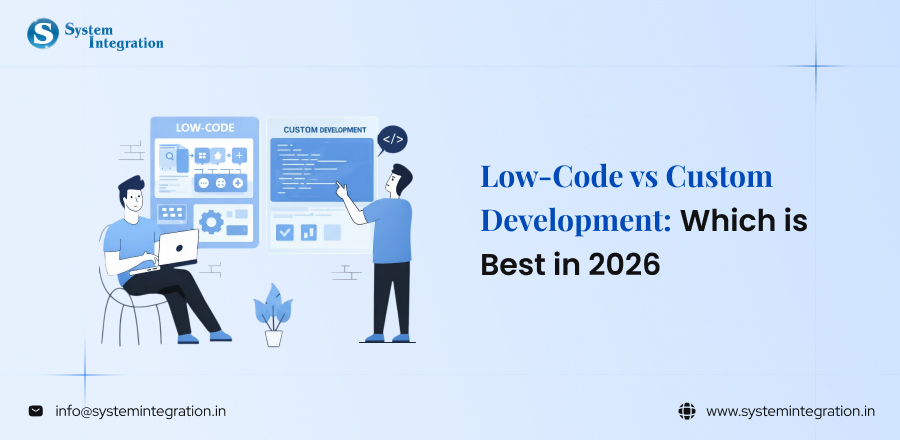Introduction
Marketers have had a rough time trying to deliver truly personalized experiences across thousands of prospects and touchpoints. Then entered the era of AI-powered marketing automation, an incredibly effective solution for redefining the way businesses connect with their audiences.
When these automation tools integrate artificial intelligence capabilities, companies can quickly understand massive datasets, accurately forecast customer needs, and provide hyper-personalization nearly instantly across many channels.
However, converting is not just enhancing campaign results but the fundamental way organizations develop leads, foster trust, and foster long-term loyalty.
What Is AI Powered Marketing Automation
AI powered marketing automation is the practice of using intelligent data analysis and seamless automation to create and deliver the right message to the right consumer at the right time.
It helps businesses forecast consumer requirements, improve relationships, it also enables them to replicate efforts at scale with accuracy and speed. One can think of marketing automation as your digital assistant. Sending Email, lead development, as well as campaigns.
Here’s how it works
- Smarter Choices: AI uses customer data, behavior, and interests, in addition to the timing, to quickly decide what message to send and when.
- Personalized at Scale: Rather than sending the same email to hundreds of people, AI customizes the email for every person on the list for relevant information for each of them.
- Predicts the Future: It’s not just that AI is intelligent. It’s that it’s perceptive. It understands which prospects are the most likely to convert
How Has The Demand For Personalization Shifted?

source: McKinsey & Company
Personalization went from a “nice-to-have” to a consumable tactic. Buyers may be on the business side. They reach a positive, pleasurable experience. Marketing is all of us. Business no longer races on common generic, value-driven, and AI-driven personalization connections.
Some Of The Major Key Shifts Involve:
- From mass marketing to micro-targeting – Rather than targeting whole industry segments, campaigns target individual buyer needs.
- Adoption of AI and automation – Machine learning can be used to predict and provide personalized experiences in the moment for businesses.
- Personalisation over information – Buyers are looking for ways to personalize recommendations and insights, not gather more product information.
- Data driven personalization loops – Feedback is used to re-optimize content and messaging for even more effective engagements.
- Multi channel relevance – All personalized experiences are relevant beyond the inbox and across websites and social channels.
How AI Delivers Personalization At Scale?
Predictive Personalization
Predictive Personalization. AI uses predictive analytics to be one step ahead of customer needs. The technology allows brands to forecast the potentiality to buy, offer relevant solutions, and lead nurturing with an accuracy check hovering around 90%.
Machine Learning Powers
Machine learning supports personalization by getting better every experience. For instance, ML helps your team run more clever campaigns, instantly changes all texts to the most optimal one and fosters professionals to decide using the strongest data.
Real Time Adoption
AI powers instant personalization by processing real-time behavioral data. Organizations are equipped to adjust messages, offers, or content instantaneously, serving hyper-relevant experiences that enhance engagement. The greater the level of engagement, the higher the conversion rate across digital channels.
Audience Segmentation And Targeting
AI-driven segmentation utilizes demographics, behaviors, and intent to create hyper-specific buy groups. Now marketers can deploy another one—not one size fits all—value campaigns customized to resonate with decision-makers. This implies more excellent quality leads and quick sales travel.
Real Life Examples of AI Powered Personalization
1) E-Commerce: Based on the user behavior, and their shopping history the AI recommendation suggests products that users actually might like.
2) Amazon’s product recommendation: Amazon analyzes the user’s purchase history in order to suggest relevant items naming the categories like “frequently brought items”. This helps in boosting the sales.
3) Netflix content suggestions: its AI powered algorithm analyzes the user’s view history to recommend similar shows or movies naming the categories like “because you liked this movie”, “for you”, “top 10 movies in your country”, and more.
4) Spotify’s personalized playlist: Spotify creates AI powered playlists like “discover weekly”,”daily mix”, “more of what you like” and more for each user.
Core Area Where AI Effects Significantly Effects Marketing
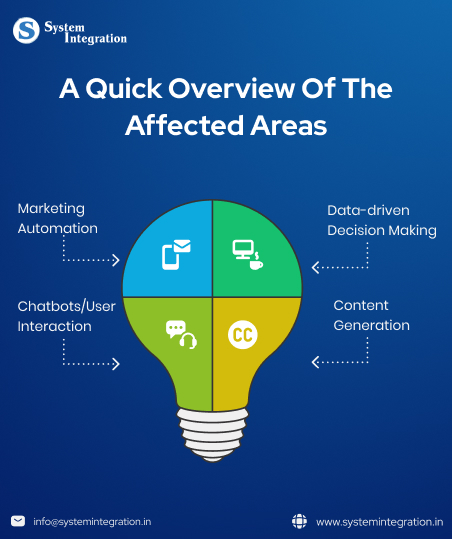
Marketing Automation – AI driven marketing automation helps companies automate repetitive tasks such as lead nurturing, segmentation, and campaign management. It has higher efficiency, less manual labor, and supports personalized and regular communication at each stage during the buyer’s journey.
Data-driven Decision Making – AI assists marketers in predictive analytics and understanding actionable insights from considerable datasets. A business can optimize their campaigns, more smartly allocate their budgets, and leverage evidence to make other marketing-related decisions which directly impact the ROI.
Chatbots/User Interaction – AI powered chatbots improve business interaction by delivering immediate, customized answers or other assistance 24/7. They qualify leads, answer complicated questions, and boost client experience. They connect communication divides that enable the sales team to concentrate on the most important conversions.
Content Generation – businesses rely on AI to create data informed, relevant content faster. AI helps marketers produce blog drafts, account-based marketing emails, promo scripts, and more. AI ensures messaging meets buyer intent, brand philosophy, and maximally high-quality communication includes creativity and precision.
Parting Words
AI powered marketing automation, an incredibly effective solution for redefining the way businesses connect with their audiences. Automation tools integrate artificial intelligence capabilities helping companies to accurately forecast and personalize service and products as per customer needs, and provide hyper-personalization nearly instantly across many channels.
FAQs
AI recognizes patterns in behavior and segments audiences continuously, adjusting messaging to individuals so everyone sees content that’s relevant and timely.
businesses in various domains, such as eCommerce, SaaS, finance and retail value AI personalization to improve engagement and increase conversions.
Regular automation is rule-and-trigger-base, reliant on programmed rules to fire actions as opposed to AI, which actively learns with each interaction and adapts based on new and past performance in real-time, making it more accurate and customer relevant.
Key tools in the space are: HubSpot, Salesforce Einstein, Adobe, Marketo active campaign n8n + AI models for custom workflows and data automation.


